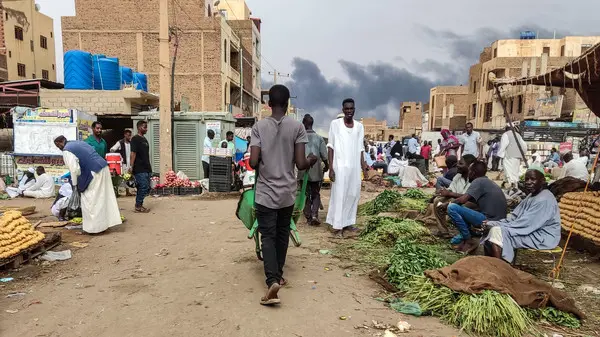UN Report: 20 Million Sudanese on the Verge of Famine Due to Conflict

As a result of the ongoing war between the army and the Rapid Support Forces with no hope of reaching an agreement between the warring parties, the number of those suffering from “acute food insecurity” in Sudan has doubled, and the fighting has forced around 4 million people to be displaced either internally or externally, according to the United Nations.
The United Nations’ Food and Agriculture Organization (FAO) stated in a statement on Wednesday that “more than 20.3 million people, representing over 42% of the country’s population, are experiencing high levels of acute food insecurity.” It further added, “compared to the results of the latest analysis conducted in May 2022, the number of people suffering from severe food insecurity has almost doubled.”
The UN organization described the situation in Sudan as “undoubtedly critical,” especially with “nearly 6.3 million people in the emergency stage of acute hunger.” (FAO) pointed out that the most affected states “are those suffering from active conflicts, including Khartoum, South and West Kordofan, Central, East, South, and West Darfur, where over half of the population faces acute hunger.”
The conflict erupted between the army and the Rapid Support Forces on April 15 and has been concentrated in the capital and its suburbs, as well as in the Darfur region in western Sudan and some southern areas, resulting in the death of at least 3,900 people so far.
This war has forced millions to leave their towns and homes, either to other states away from violence or to neighboring countries. According to the latest statistics from the International Organization for Migration, more than 3 million people have been internally displaced, while about a million people crossed the borders into neighboring countries.
In the meantime, major hospitals and medical organizations and civil society have issued numerous pleas, warning of humanitarian disasters due to the depletion of their life-saving medication stocks, or because their medical staff are without food, or due to projectiles hitting their buildings and killing some doctors. Other hospitals have requested citizens to provide them with drinking water or water for sanitary use due to water cuts, and some hospitals have asked citizens to provide them with fuel for their electricity generators, which have been running continuously due to the public electricity service interruption, leading to the depletion of their fuel, with fuel stations no longer operating.












